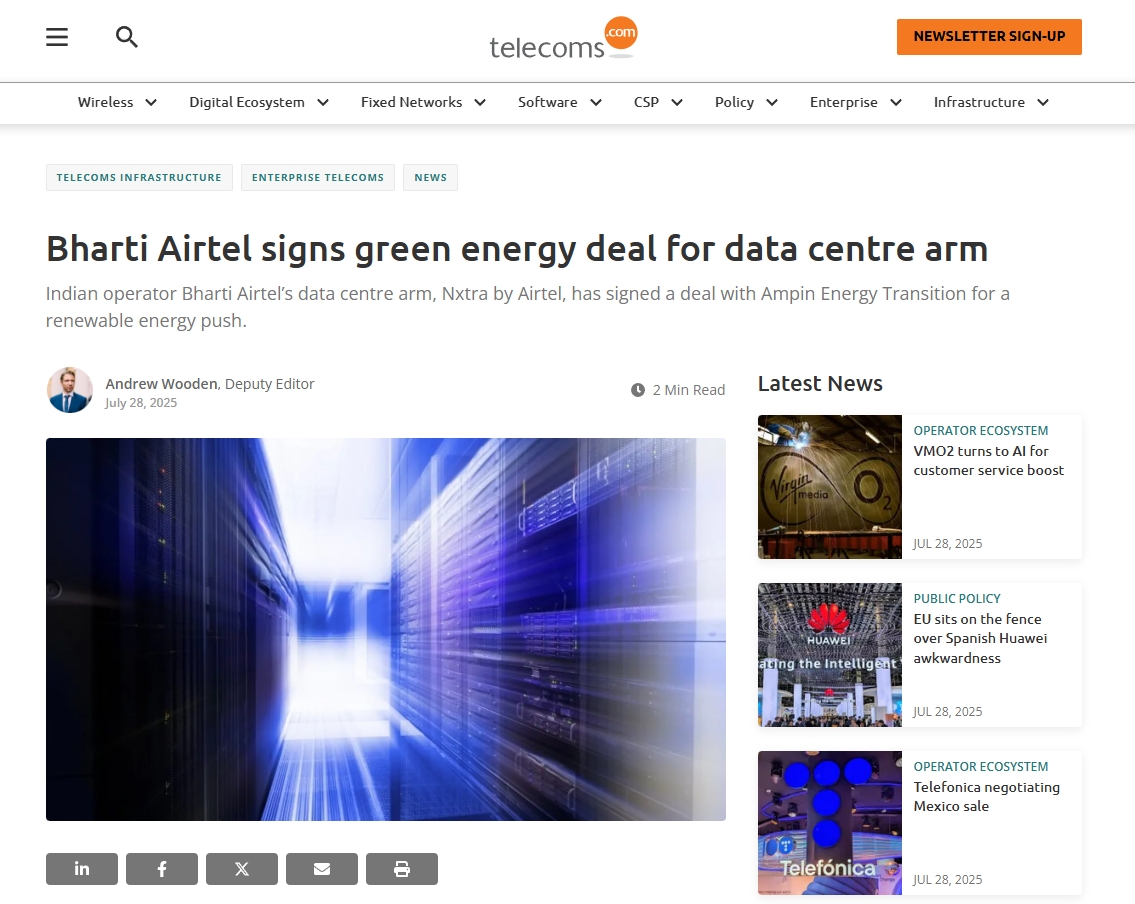First pilot project expected to reach commercial operations in 2027
Japanese shipping giant Mitsui O.S.K. Lines (MOL) has partnered with Kinetics, an energy systems provider, to develop a floating data center platform.
The two companies signed a Memorandum of Understanding (MoU) to collaborate on the design, construction, and deployment of a data center hosted on a retrofitted vessel.
The partnership will support an initial pilot project that involves the deployment of a 20 to 73MW data center (expandable depending on module configuration) on a 9,731-ton ship. The partners plan to connect the data center to an Internet Exchange on land and through submarine cables. The data center will utilize direct water cooling, using seawater or river water.
Work on the data center is expected to commence in 2026. During this period, the partners will also acquire the necessary permits and licenses, as well as conclude commercial contracts related to the project. Full operations at the data center are expected to begin in 2027. The location of the data center was not disclosed. DCD has reached out for further information.
"This project represents a significant step toward our vision at Kinetics: delivering innovative, efficient, and sustainable infrastructure solutions that meet the energy needs of today and tomorrow," said Mehmet Katmer, CEO of Kinetics. "By pairing mobile power generation with floating data infrastructure, we are addressing critical market bottlenecks while enabling faster, cleaner, and more flexible digital capacity expansion."
The data center will be powered by uninterrupted, dedicated power from a range of flexible sources. This will include Karpowership’s Powerships solution. Turkish company Karpowership is the parent company of Kinetics and specializes in the development of Powerships. It launched Kinetics back in 2024 to deliver flexible energy systems, including floating renewable energy platforms.
Powerships are self-propelled or towed floating power plants equipped with dual-fuel engines, high-voltage substations, fuel storage, and living quarters for the crew. The power plant can operate on both heavy fuel oil and natural gas and is designed as a fully integrated power plant. The company offers several classes of Powership, ranging from the Kahn class with a maximum capacity of 470MW to the Mermaid class, with a maximum capacity of 80MW. The system has been deployed across 19 countries, with more than 10GW of installed capacity.
In addition to the Powerships solution, the partners are exploring supplementary power sources, including the integration of land-based grid connection, onshore solar farms, offshore wind, as well as other generation solutions, depending on the location of the project and exact client requirements.
"This MoU represents an important step forward in leveraging the MOL Group's assets and extensive expertise in ship operations to rapidly build digital infrastructure while minimizing environmental impact. Moving forward, we will continue to expand a diverse range of social infrastructure businesses centered on the shipping industry,” said Tomoaki Ichida, managing executive officer of MOL.
Several companies have explored the floating data center concept. It was first pioneered by Nautilus Data Technologies, which commissioned its first waterborne data center back in 2021. The 7MW facility was installed on the deck of a barge at the Port of Stockton, California. Last November, Nautilus put its Stockton data center up for sale for a listed price of $45 million.
Earlier this year, a consortium of Japanese companies announced a pilot project to deploy an offshore floating data center off the coast of Yokohama, Japan. The containerized data center will be installed on a float alongside solar and battery storage facilities, which will be used to power it.








